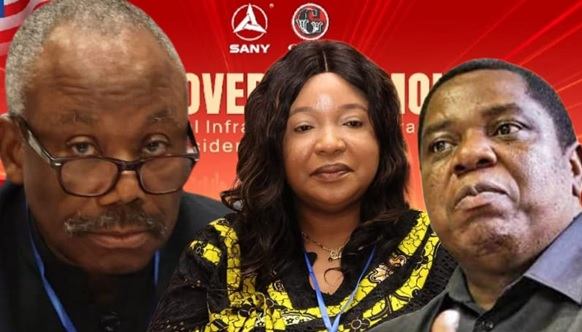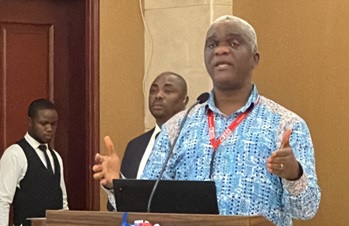MONROVIA – The Minister of State for Presidential Affairs, Sylvester M. Grigsby, and the Minister of State Without Portfolio, Mamaka Bility, along with South African businessman Robert Gumede, are reportedly on the verge of extracting tens of millions of USD from Liberia’s national treasury through a dubious deal and kickbacks. These allegations were brought to light on Monday, July 8, 2024, in an explosive write-up by Martin Kollie, titled, “The FACTS are out. The Devil Deal – The Faustian Bargain Is About To Victimize Liberia Again.”
Kollie claims that the Liberian government will be burdened with a staggering US$80 million over four years due to this “devil deal.” He criticized the administration for its lack of transparency and accountability, arguing that such deals undermine the rule of law and responsible governance. According to Kollie, Robert Gumede, along with Grigsby and Bility, are set to benefit from inflated prices and kickbacks, a scenario that could drain the national treasury.
Kollie highlighted the suspicious nature of the procurement process, pointing out that similar transactions involving the Sany Group in Kuwait were conducted directly, without third-party intermediaries. He questioned why Liberia had to involve intermediaries like Grigsby and Bility, implying that the involvement of these officials is primarily to facilitate the extraction of kickbacks.
The equipment in question includes various medium-sized construction machines such as Sany tipper trucks, water tankers, front loaders, motor graders, and excavators. Kollie provided detailed specifications and pricing information, suggesting that the costs have been artificially inflated. He questioned the necessity and legality of the procurement process, demanding answers from the government regarding the funding, cost, and compliance with procurement regulations.
Kollie called for transparency, urging the government to release all relevant documents and provide clear answers to several pressing questions: What is the total cost of the deal? Who is funding it? Were proper procurement procedures followed? He also questioned the long-term implications of the deal, including maintenance, training of operators, and the overall cost-benefit analysis.
The controversy has also reached the political arena, with several opposition lawmakers voicing their concerns and demanding a thorough investigation into the matter. Lawmaker Musa Bility stated, “This situation underscores the need for stringent oversight and robust anti-corruption measures to safeguard our nation’s resources. The people of Liberia deserve better than to have their hard-earned money squandered through shady deals.”
International observers and aid organizations are also watching closely, as Liberia relies heavily on foreign aid and investment to bolster its economy. The potential fallout from this scandal could have far-reaching implications, not just for domestic politics but also for international relations. Transparency institutions have already expressed concern over the allegations, stressing the importance of maintaining transparency and integrity in government dealings to attract and retain foreign investment and support. The unfolding situation puts the Boakai administration under intense scrutiny, as both domestic and international stakeholders await a comprehensive and transparent resolution.







